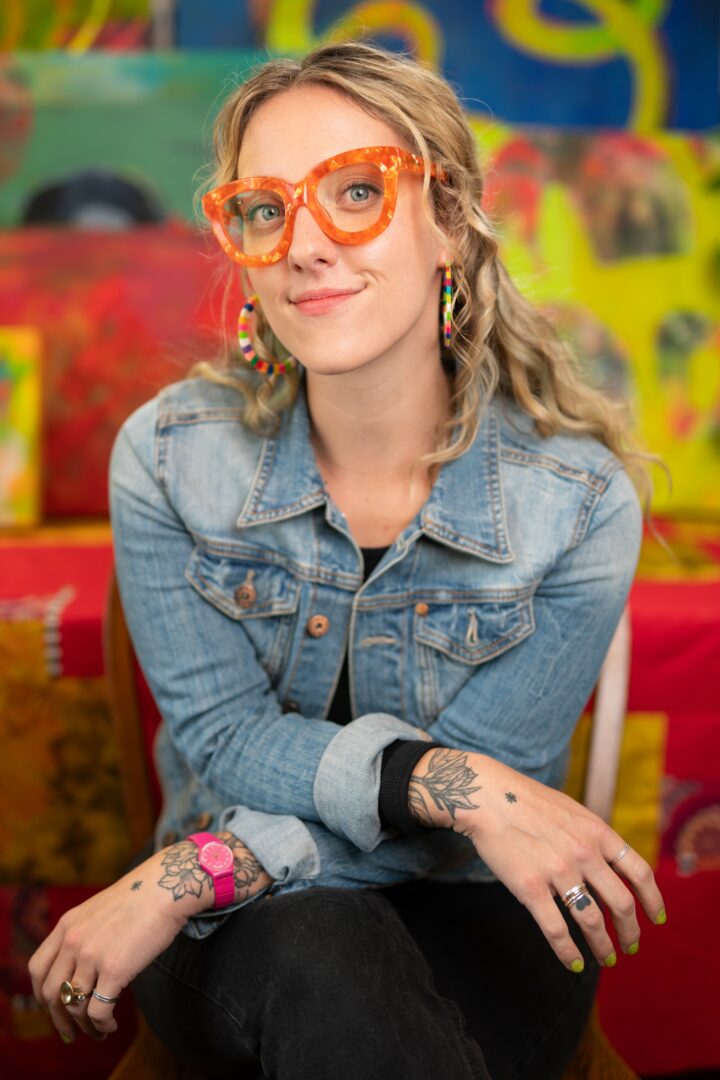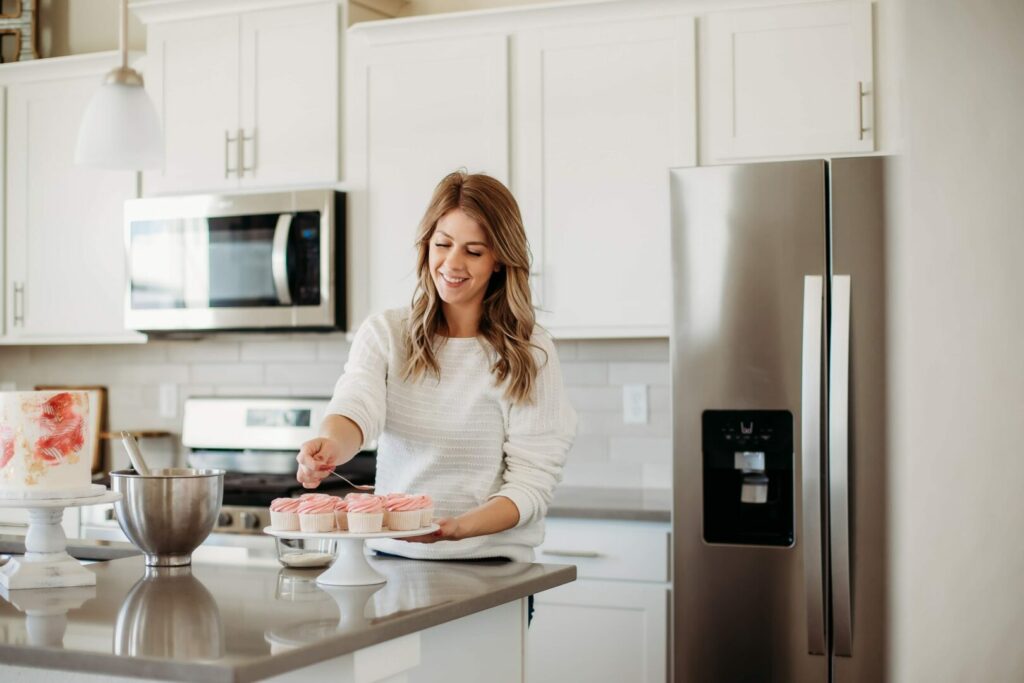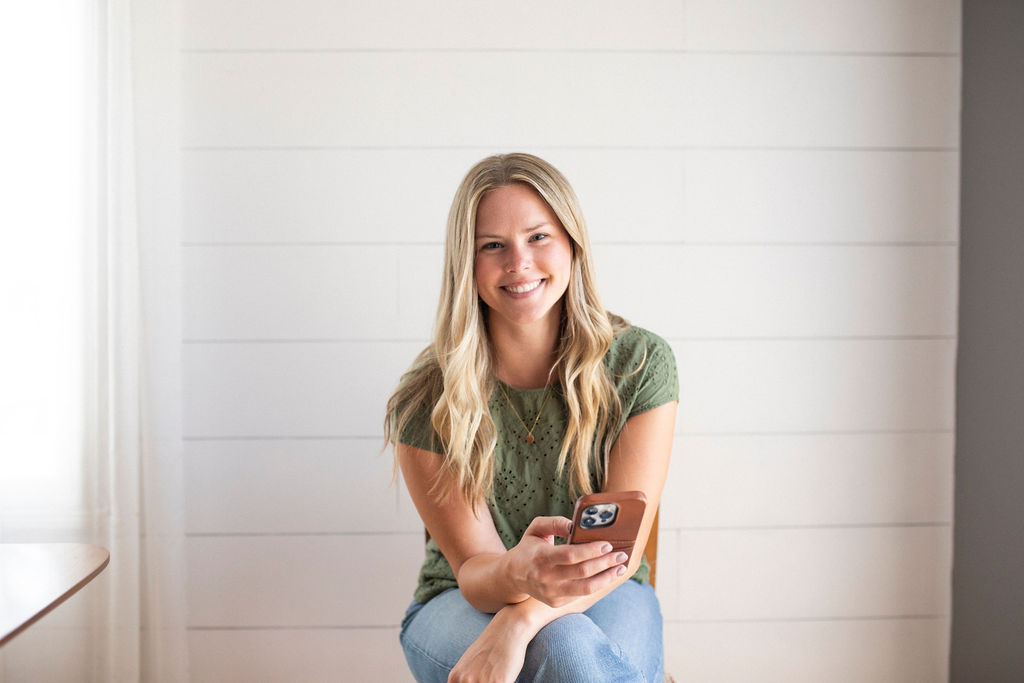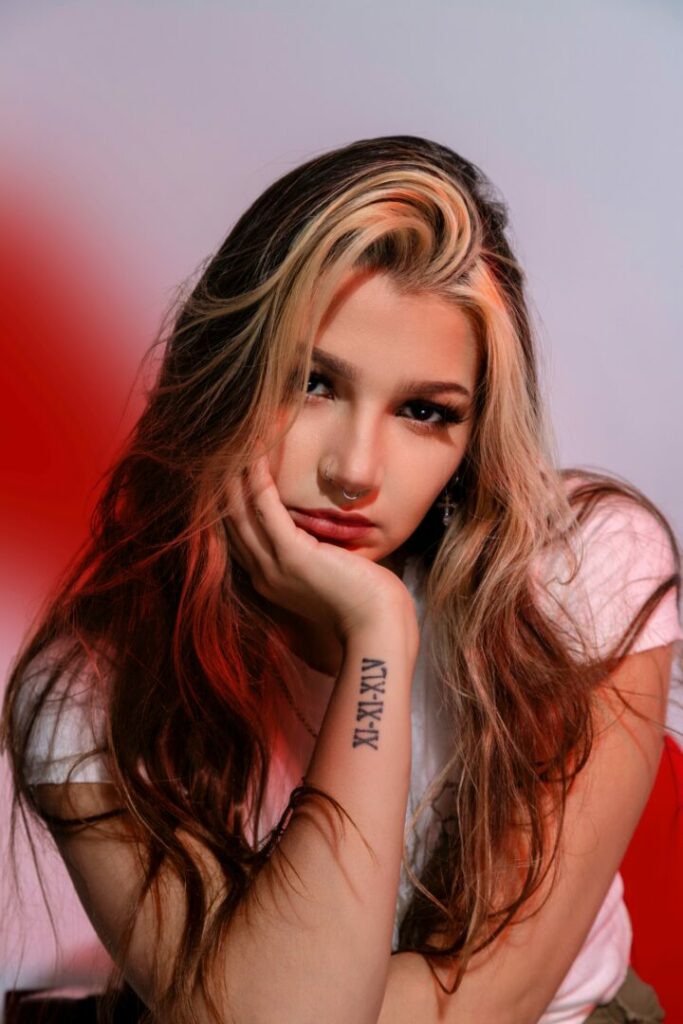We recently connected with Amelia Knott and have shared our conversation below.
Amelia, so great to have you with us today. There are so many topics we want to ask you about, but perhaps the one we can start with is burnout. How have you overcome or avoided burnout?
Something I’m exploring within myself and my work right now is how to return to the rhythm of work after burnout. The last few years have felt like a pendulum swinging between periods of generative creativity and the crash that follows. I’ve learned I can’t sustain this rhythm indefinitely. Crafting a sustainable career means being incredibly compassionate toward myself when my tank is empty.
This summer asked me to slow down in a way that felt uncomfortable. In the middle of launching my book and a preparing for a career-defining collaboration, my community was evacuated from forest fires. My old tendency would have been to push past my body’s signals of overwhelm and try to perform at my peak level. I came to a full stop. It was terrifying to pause the pace I’d grown used to and fully tend to my nervous system.
I have not overcome burnout yet. It’s a conversation that is still unfolding. For me, it means accepting that my return to work doesn’t need to be fast or frantic. My new operating speed doesn’t match my old notions of productivity.
My work centers conversations about creativity, wellbeing, and resisting hustle culture. Proceeding with integrity means honoring the capacity I have in *this* season of life. There’s grief in realizing that the old standards I held for myself don’t match my current capacity. There’s also self-loyalty and trust that comes with redefining what I expect of myself. I can’t show up as an artist or hold presence for my art psychotherapy clients when I’m running on fumes.
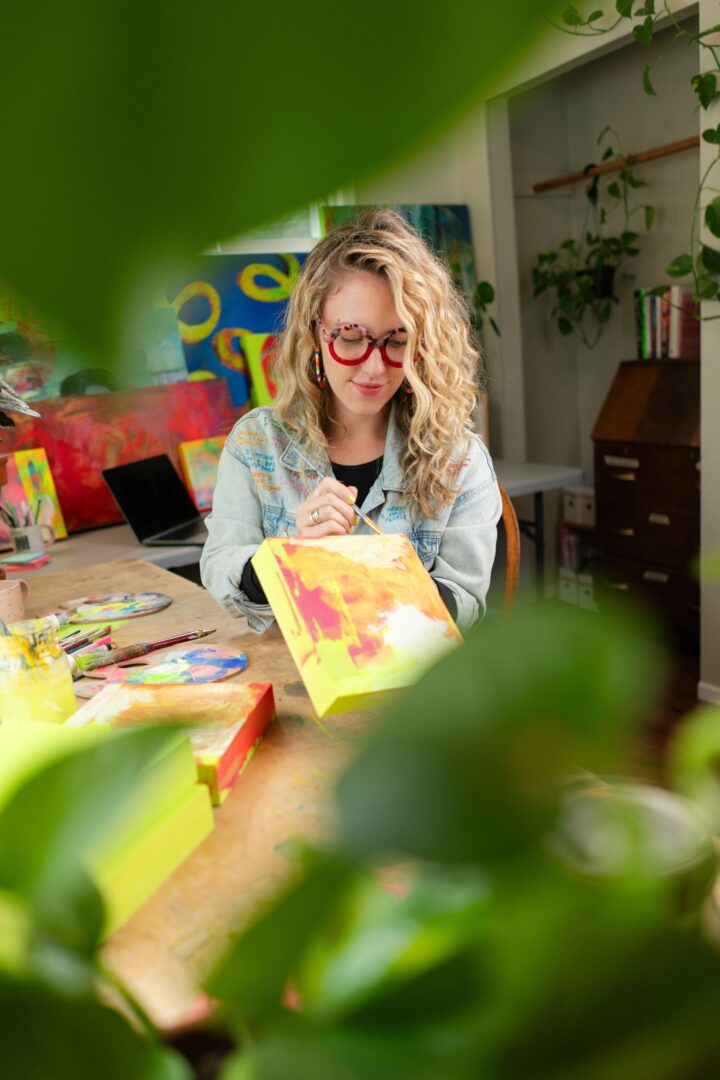
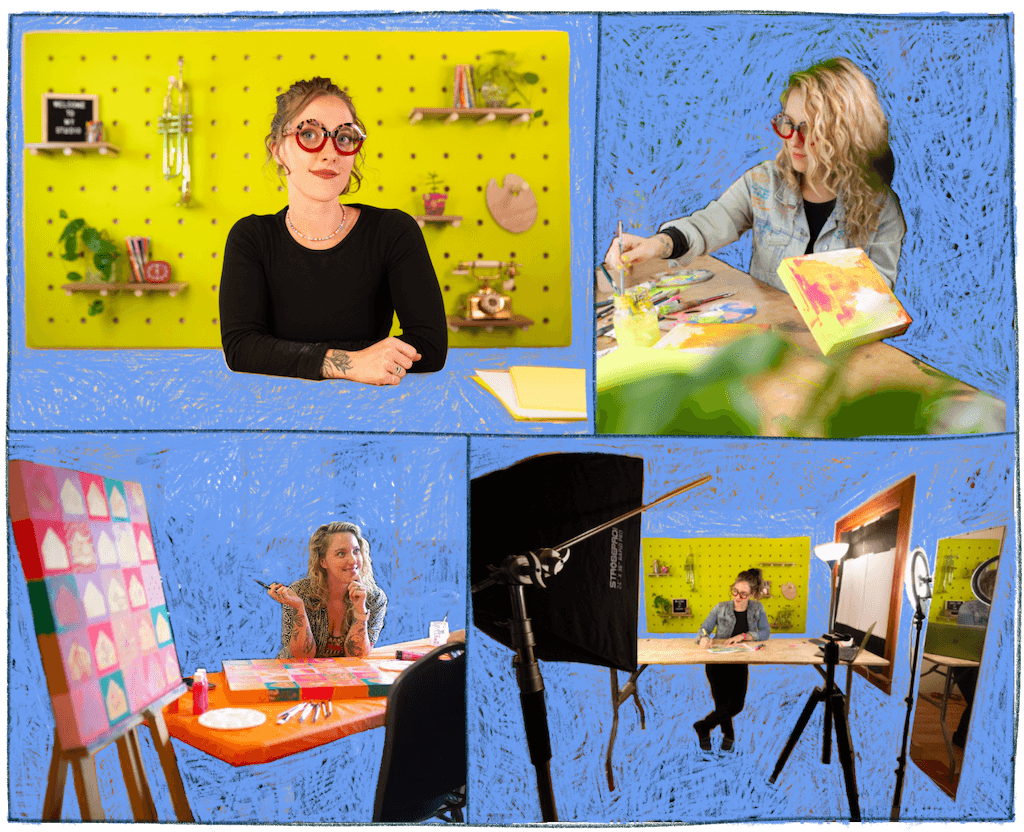
Thanks for sharing that. So, before we get any further into our conversation, can you tell our readers a bit about yourself and what you’re working on?
I’m invested in the question of how creativity might help us navigate the digital age and hustle culture.
I love the way art opens up space to explore feelings through colour, poetry, movement, + metaphor. As a person with ADHD, big feelings, and more questions than answers, making things helps me feel safe, alive, and connected. Art has always been my way of making sense of the world and holding feelings that don’t fit neatly into language. In my undergrad I studied community arts; how to use art to facilitate community building and social justice efforts. After returning to Canada, I went on to train as an art psychotherapist. Today my practice is a mix of clinical clients, groups, and other creative projects.
In the past few years my curiosity has turned toward the mental health impacts of social media. What could “wellness” mean when we choose to be online? I think creativity is a pathway into this complicated and nuanced conversation. It’s what will help us imagine new futures. My book, The Art of Thriving Online, explores these questions and offers art and writing prompts to help readers author their own definition of wellness in the digital age.
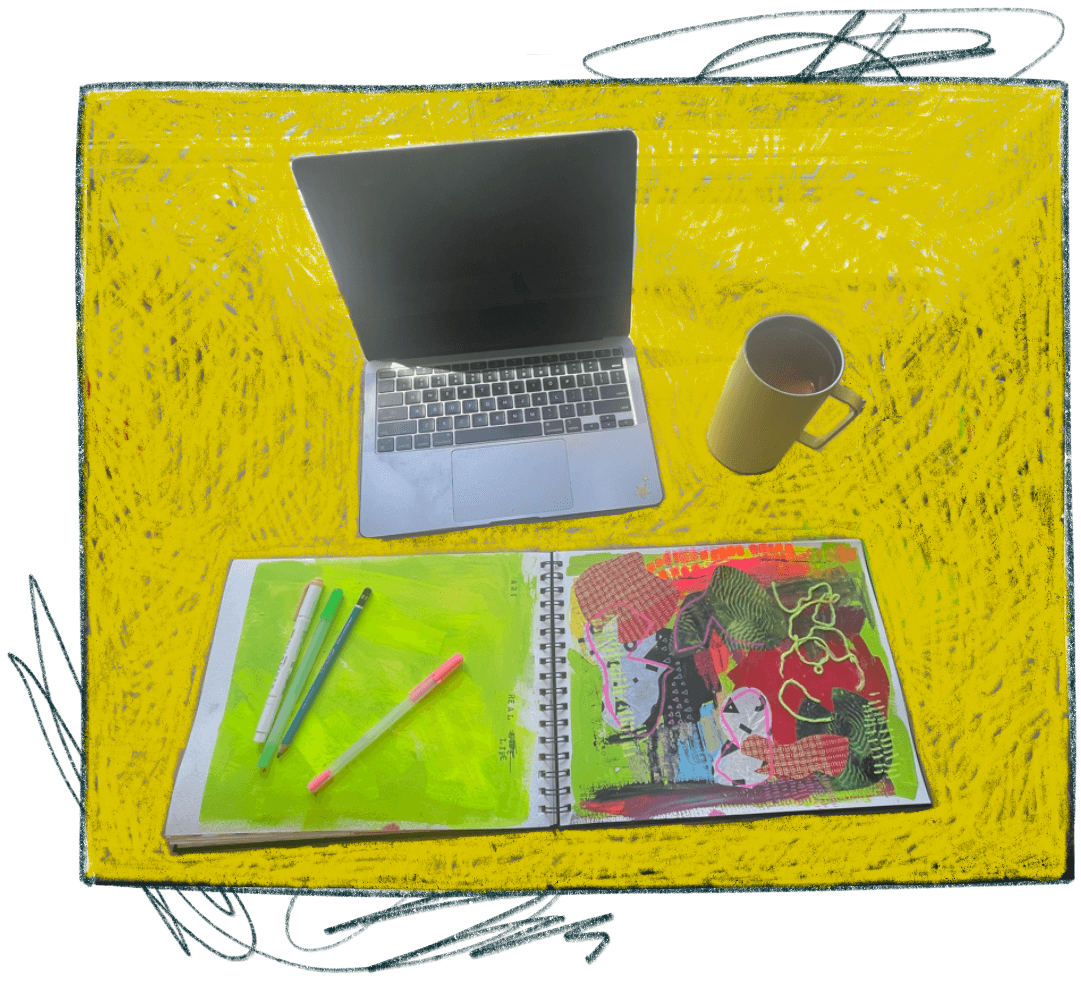
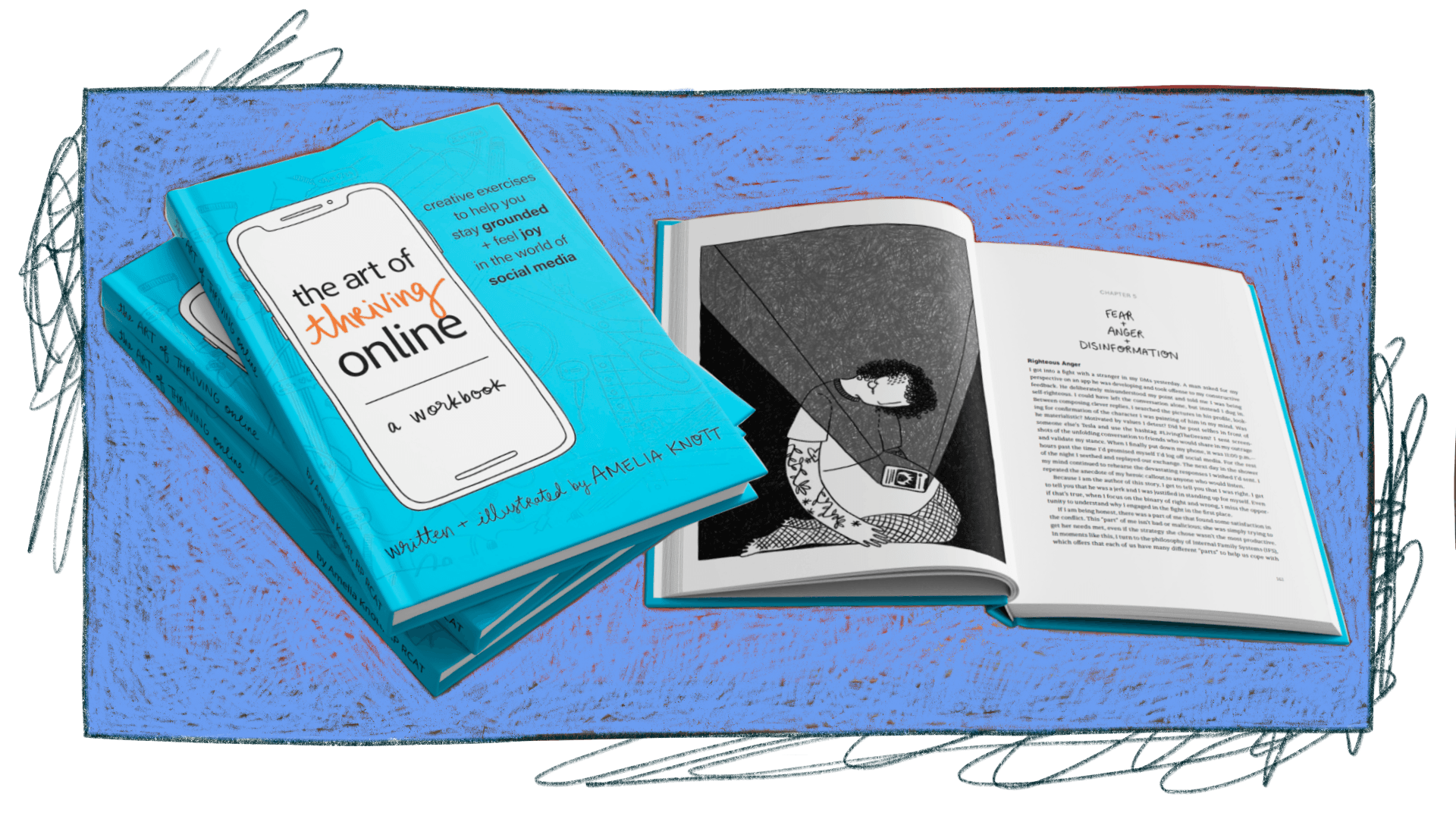
Looking back, what do you think were the three qualities, skills, or areas of knowledge that were most impactful in your journey? What advice do you have for folks who are early in their journey in terms of how they can best develop or improve on these?
Social media offers us endless examples of other people’s achievements. I think it’s valuable to begin with asking ourselves what “success” actually means on a personal level. What does it mean to impress YOURSELF rather than aiming for someone else’s definition of a job well done? When we have personal metrics of worthiness, it’s easier not to get distracted by the number in the bank account or social media analytics.
I also think making time for creativity without the goal of producing a final product is crucial. When I was writing my book I often started my day with morning pages or poetry that never translated to the larger project. That creative process helped me remember what’s actually true and important to me. From that place, I was able to write something that felt energized and loyal to who I am as an artist. My best work arrives when I take the scenic route.
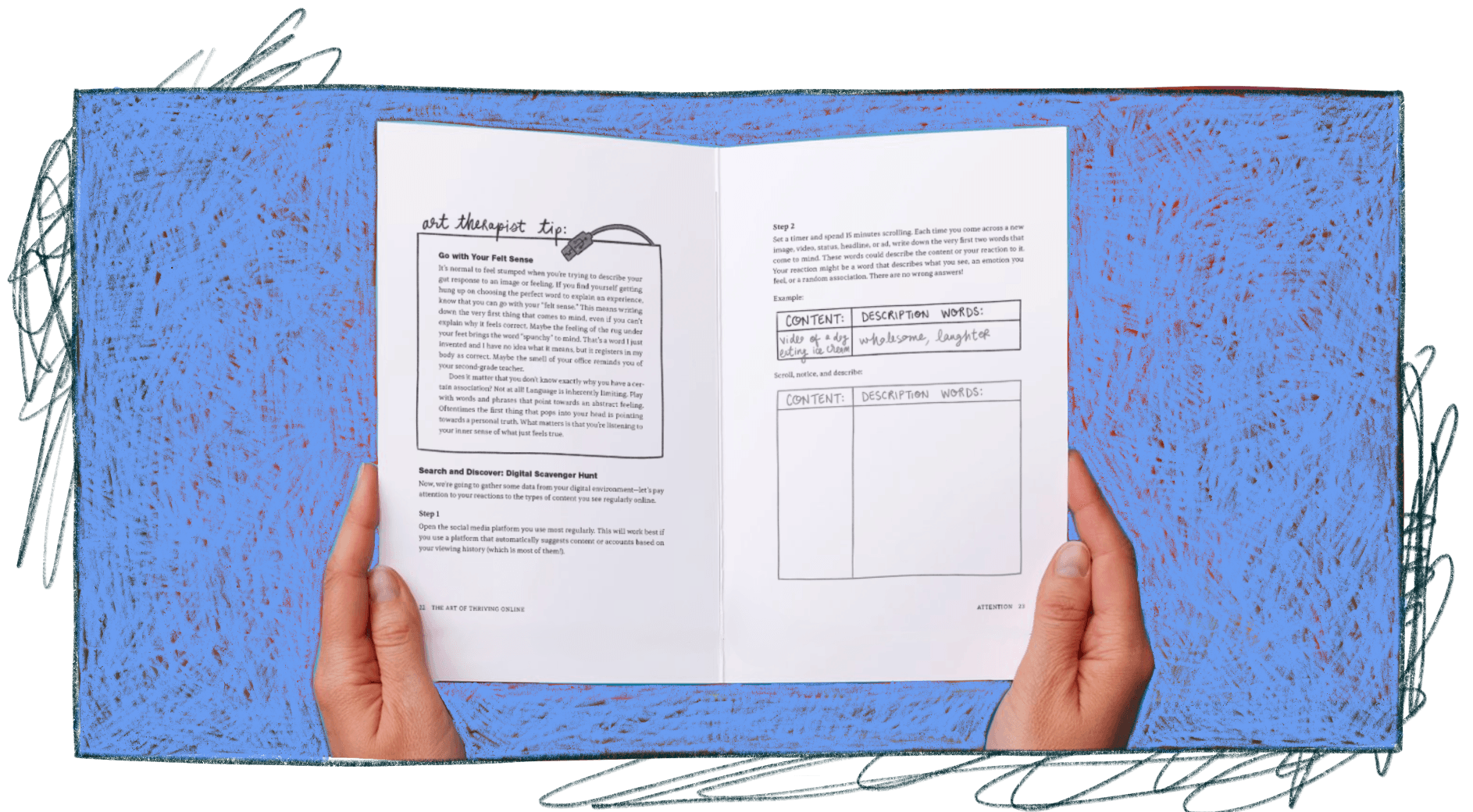
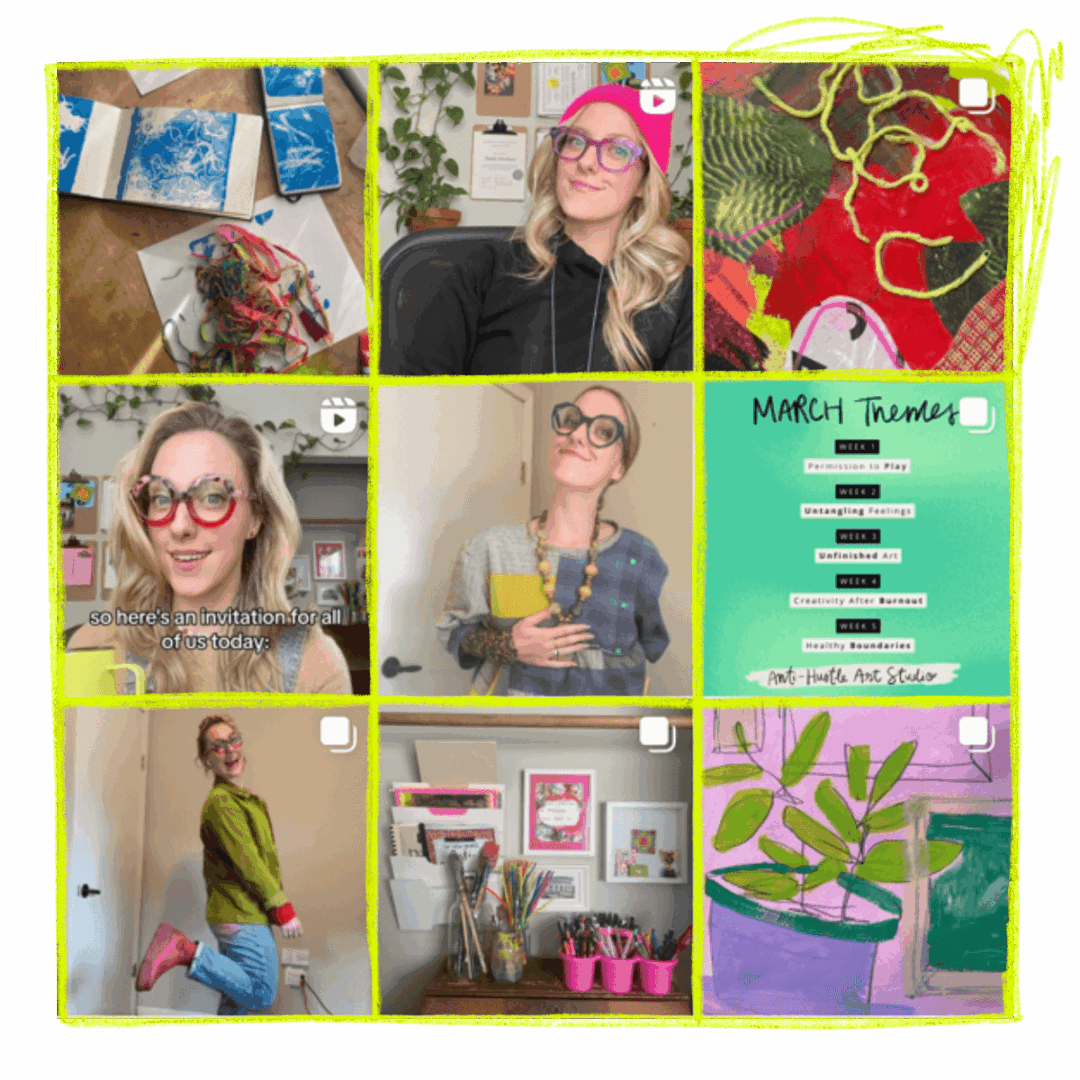
To close, maybe we can chat about your parents and what they did that was particularly impactful for you?
I experienced profound grief and trauma in my early childhood. When I was 5, my mother signed me up for art classes with an abstract painter. I attended her classes until I was 18. While it wasn’t the same thing as art therapy, learning to paint in that way at a young age gave me an outlet to express things that felt impossible to solve with words. It was like inventing my own language to navigate the world with.
The practice of improvising, responding to a composition, and finding creative flow are the foundations of everything I do now. Those skills inform the way I show up in work with clients, collaborating with companies on workshops, or other creative projects.
Contact Info:
- Website: https://www.arttherapyinreallife.com/
- Instagram: https://www.instagram.com/art_therapy_irl/
- Facebook: https://www.facebook.com/art.therapy.irl/
- Other: My book: https://www.arttherapyinreallife.com/the-art-of-thriving-online
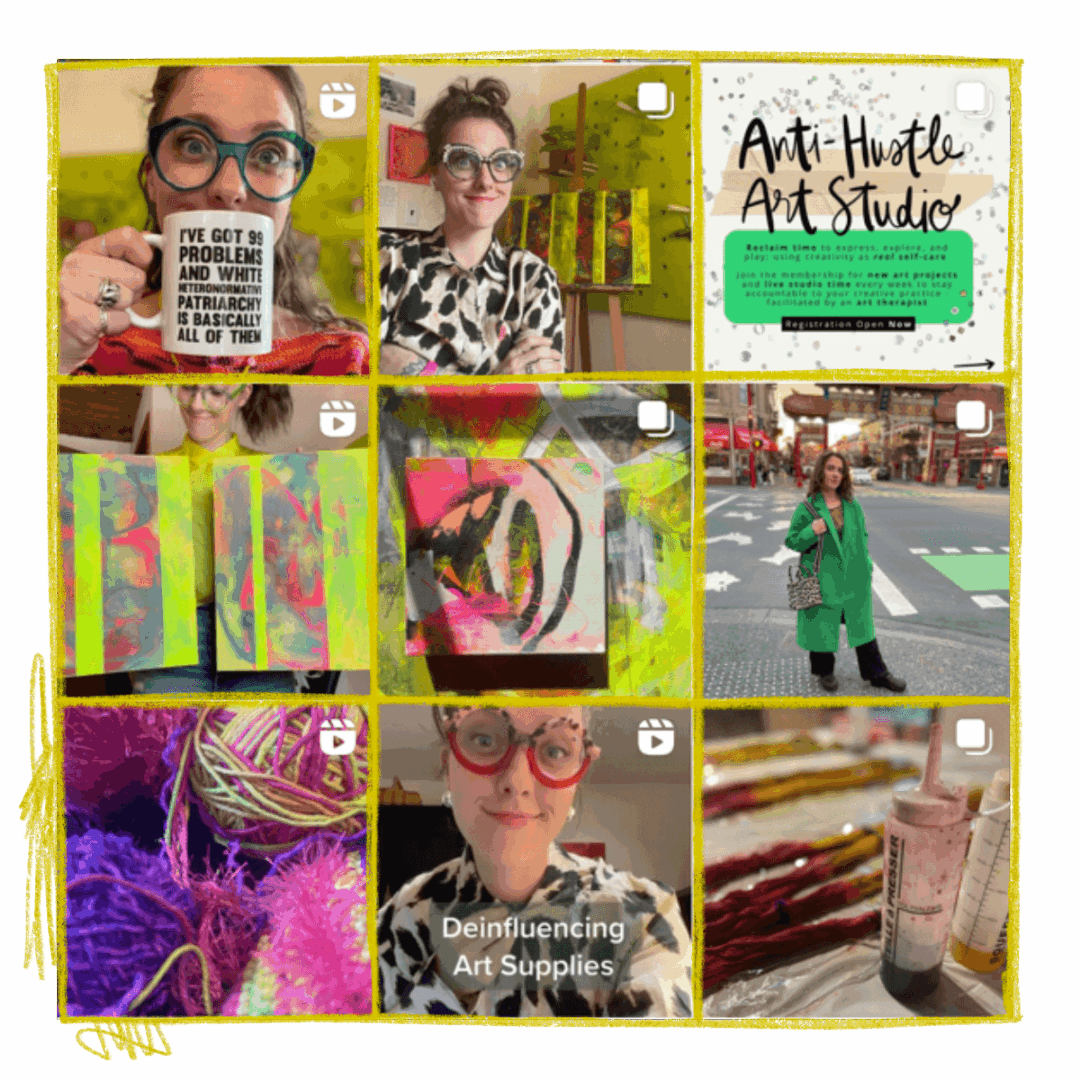
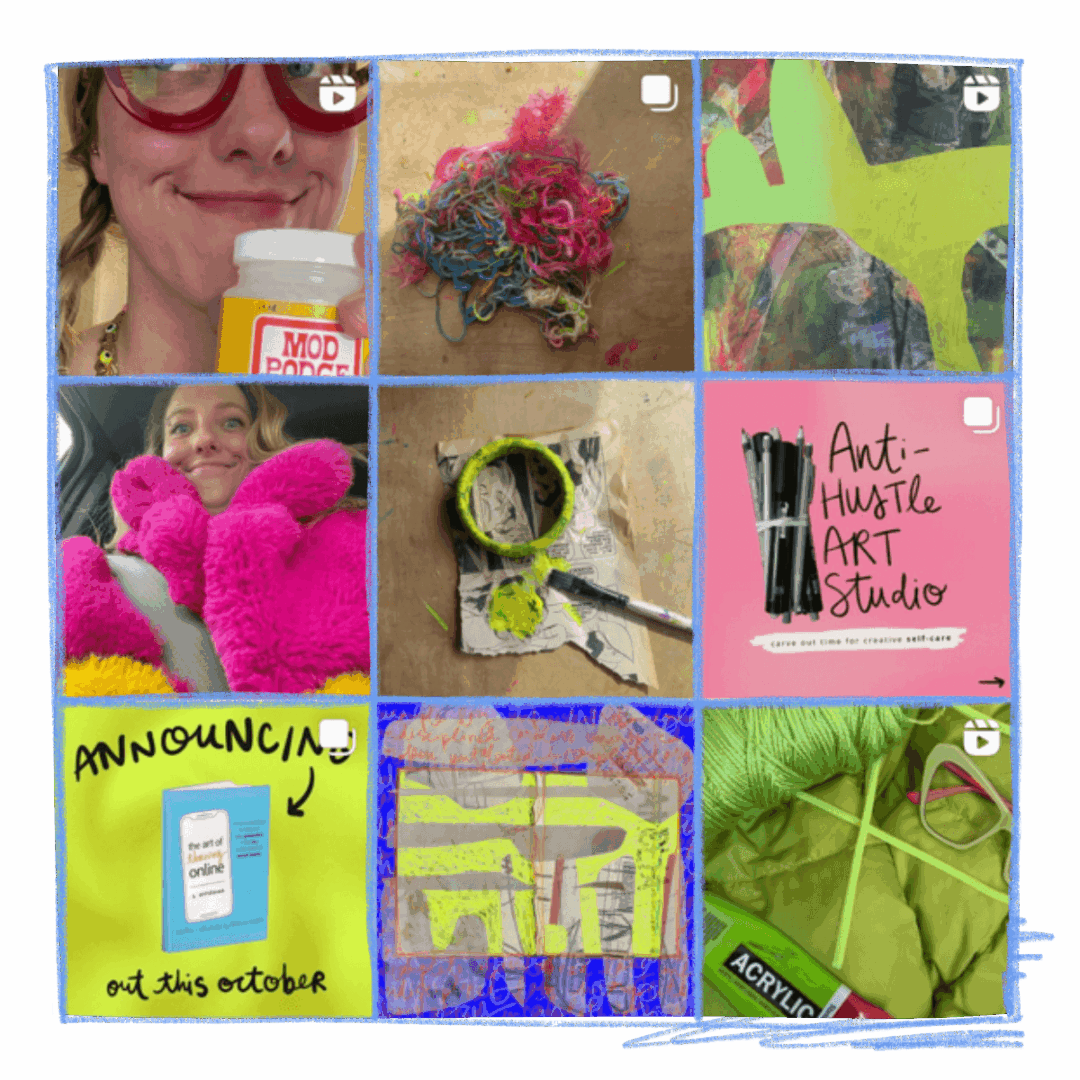
Image Credits
Headshot: Kenton Doupe
so if you or someone you know deserves recognition please let us know here.

